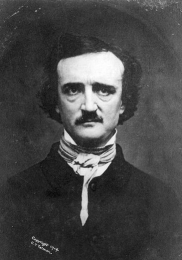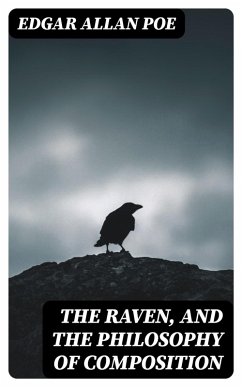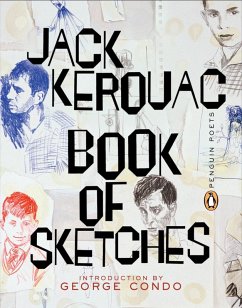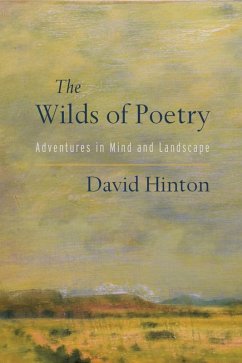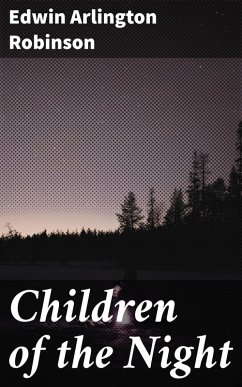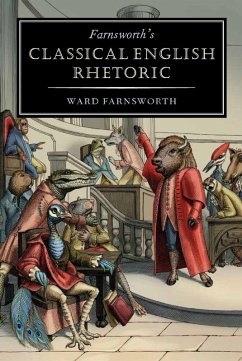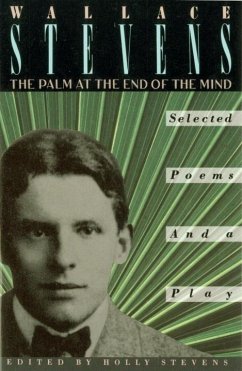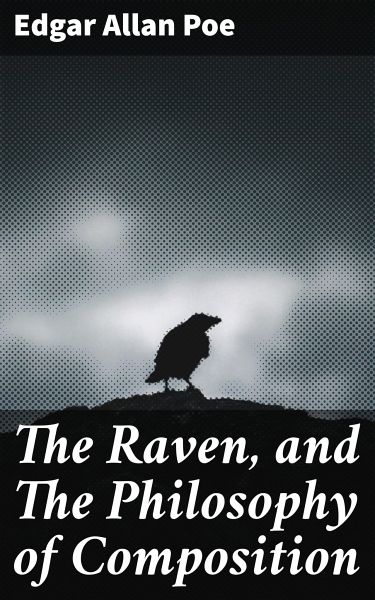
The Raven, and The Philosophy of Composition (eBook, ePUB)
Enriched edition. Delving into the Dark and Macabre: A Haunting Exploration of Poe's Enigmatic Raven and Creative Process
Kommentar: Stanhope, Bennett / Redaktion: Good Press

PAYBACK Punkte
0 °P sammeln!
Edgar Allan Poe's "The Raven, and The Philosophy of Composition" serves as an essential study of poetic form and aesthetics, framed within the haunting narrative of his iconic poem, "The Raven." This work offers a rich exploration of the interplay between emotion and logic in poetry, showcasing Poe's mastery of language, rhythm, and meter. Through his detailed exegesis, Poe illuminates his deliberate compositional process, blending gothic elements and a melancholic tone characteristic of the Romantic era. The philosophical insights into the mechanics of creating an impactful poem underscore th...
Edgar Allan Poe's "The Raven, and The Philosophy of Composition" serves as an essential study of poetic form and aesthetics, framed within the haunting narrative of his iconic poem, "The Raven." This work offers a rich exploration of the interplay between emotion and logic in poetry, showcasing Poe's mastery of language, rhythm, and meter. Through his detailed exegesis, Poe illuminates his deliberate compositional process, blending gothic elements and a melancholic tone characteristic of the Romantic era. The philosophical insights into the mechanics of creating an impactful poem underscore the work's significance in both literary analysis and creative practice. A pivotal figure in American literature, Edgar Allan Poe's experiences with loss, mental anguish, and a turbulent personal life profoundly influenced his writings. His fascination with themes of mortality, despair, and the supernatural is palpably evident in "The Raven," a reflection of his own struggles and artistic aspirations. Poe's approach as a poet and critic provides readers with a unique window into the mind of a writer obsessed with perfection and the dark complexities of human emotions. This book is a must-read for those interested in the craft of poetry and the artistry behind composition. Whether you are an aspiring poet or a literary enthusiast, Poe's insights will inspire you to contemplate the intricate relationship between form and feeling, making "The Raven, and The Philosophy of Composition" a timeless addition to your literary collection. In this enriched edition, we have carefully created added value for your reading experience: - A comprehensive Introduction outlines these selected works' unifying features, themes, or stylistic evolutions. - The Author Biography highlights personal milestones and literary influences that shape the entire body of writing. - A Historical Context section situates the works in their broader era-social currents, cultural trends, and key events that underpin their creation. - A concise Synopsis (Selection) offers an accessible overview of the included texts, helping readers navigate plotlines and main ideas without revealing critical twists. - A unified Analysis examines recurring motifs and stylistic hallmarks across the collection, tying the stories together while spotlighting the different work's strengths. - Reflection questions inspire deeper contemplation of the author's overarching message, inviting readers to draw connections among different texts and relate them to modern contexts. - Lastly, our hand-picked Memorable Quotes distill pivotal lines and turning points, serving as touchstones for the collection's central themes.
Dieser Download kann aus rechtlichen Gründen nur mit Rechnungsadresse in A, B, BG, CY, CZ, D, DK, EW, FIN, F, GR, H, IRL, I, LT, L, LR, M, NL, PL, P, R, S, SLO, SK ausgeliefert werden.




